Michael Fogus - The Joy of Clojure
Here you can read online Michael Fogus - The Joy of Clojure full text of the book (entire story) in english for free. Download pdf and epub, get meaning, cover and reviews about this ebook. year: 2014, publisher: Manning Publications, genre: Home and family. Description of the work, (preface) as well as reviews are available. Best literature library LitArk.com created for fans of good reading and offers a wide selection of genres:
Romance novel
Science fiction
Adventure
Detective
Science
History
Home and family
Prose
Art
Politics
Computer
Non-fiction
Religion
Business
Children
Humor
Choose a favorite category and find really read worthwhile books. Enjoy immersion in the world of imagination, feel the emotions of the characters or learn something new for yourself, make an fascinating discovery.
- Book:The Joy of Clojure
- Author:
- Publisher:Manning Publications
- Genre:
- Year:2014
- Rating:4 / 5
- Favourites:Add to favourites
- Your mark:
The Joy of Clojure: summary, description and annotation
We offer to read an annotation, description, summary or preface (depends on what the author of the book "The Joy of Clojure" wrote himself). If you haven't found the necessary information about the book — write in the comments, we will try to find it.
Summary
The Joy of Clojure, Second Edition is a deep look at the Clojure language. Fully updated for Clojure 1.6, this new edition goes beyond just syntax to show you the why of Clojure and how to write fluent Clojure code. Youll learn functional and declarative approaches to programming and will master the techniques that make Clojure so elegant and efficient.
Purchase of the print book includes a free eBook in PDF, Kindle, and ePub formats from Manning Publications.
About the Technology
The Clojure programming language is a dialect of Lisp that runs on the Java Virtual Machine and JavaScript runtimes. It is a functional programming language that offers great performance, expressive power, and stability by design. It gives you built-in concurrency and the predictable precision of immutable and persistent data structures. And its really, really fast. The instant you see long blocks of Java or Ruby dissolve into a few lines of Clojure, youll know why the authors of this book call it a joyful language. Its no wonder that enterprises like Staples are betting their infrastructure on Clojure.
About the Book
The Joy of Clojure, Second Edition is a deep account of the Clojure language. Fully updated for Clojure 1.6, this new edition goes beyond the syntax to show you how to write fluent Clojure code. Youll learn functional and declarative approaches to programming and will master techniques that make Clojure elegant and efficient. The book shows you how to solve hard problems related to concurrency, interoperability, and performance, and how great it can be to think in the Clojure way.
Appropriate for readers with some experience using Clojure or common Lisp.
Whats Inside
- Build web apps using ClojureScript
- Master functional programming techniques
- Simplify concurrency
- Covers Clojure 1.6
About the Authors
Michael Fogus and Chris Houser are contributors to the Clojure and ClojureScript programming languages and the authors of various Clojure libraries and language features.
Table of Contents
- PART 1 FOUNDATIONS
- Clojure philosophy
- Drinking from the Clojure fire hose
- Dipping your toes in the pool PART 2 DATA TYPES
- On scalars
- Collection types PART 3 FUNCTIONAL PROGRAMMING
- Being lazy and set in your ways
- Functional programming PART 4 LARGE-SCALE DESIGN
- Macros
- Combining data and code
- Mutation and concurrency
- Parallelism PART 5 HOST SYMBIOSIS
- Java.next
- Why ClojureScript? PART 6 TANGENTIAL CONSIDERATIONS
- Data-oriented programming
- Performance
- Thinking programs
- Clojure changes the way you think
Michael Fogus: author's other books
Who wrote The Joy of Clojure? Find out the surname, the name of the author of the book and a list of all author's works by series.

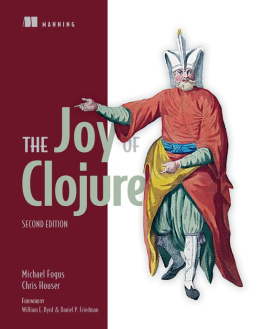
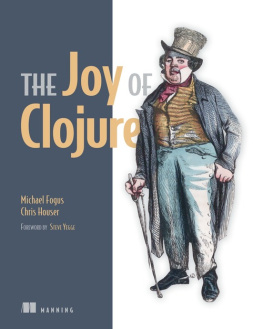
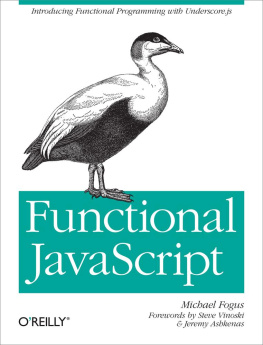
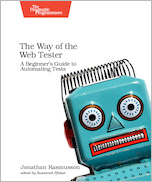
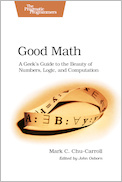
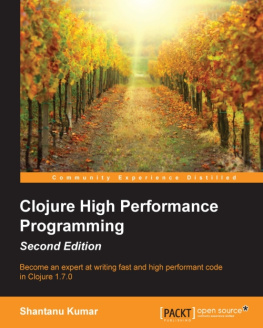
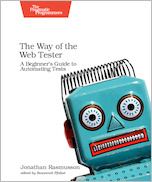
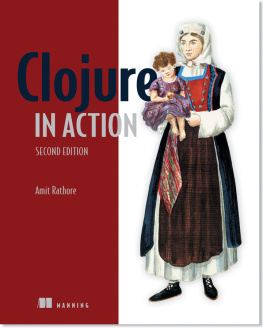

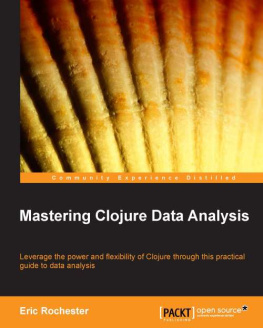
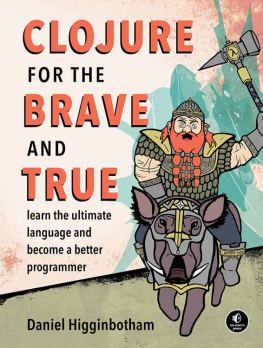
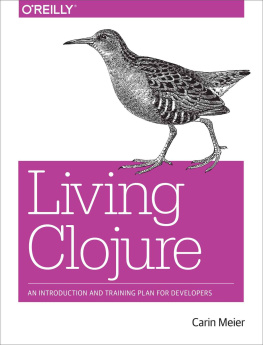
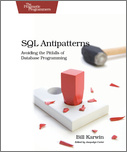
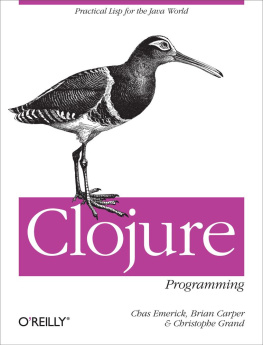

 Recognizing the importance of preserving what has been written, it is Mannings policy to have the books we publish printed on acid-free paper, and we exert our best efforts to that end. Recognizing also our responsibility to conserve the resources of our planet, Manning books are printed on paper that is at least 15 percent recycled and processed without the use of elemental chlorine.
Recognizing the importance of preserving what has been written, it is Mannings policy to have the books we publish printed on acid-free paper, and we exert our best efforts to that end. Recognizing also our responsibility to conserve the resources of our planet, Manning books are printed on paper that is at least 15 percent recycled and processed without the use of elemental chlorine.